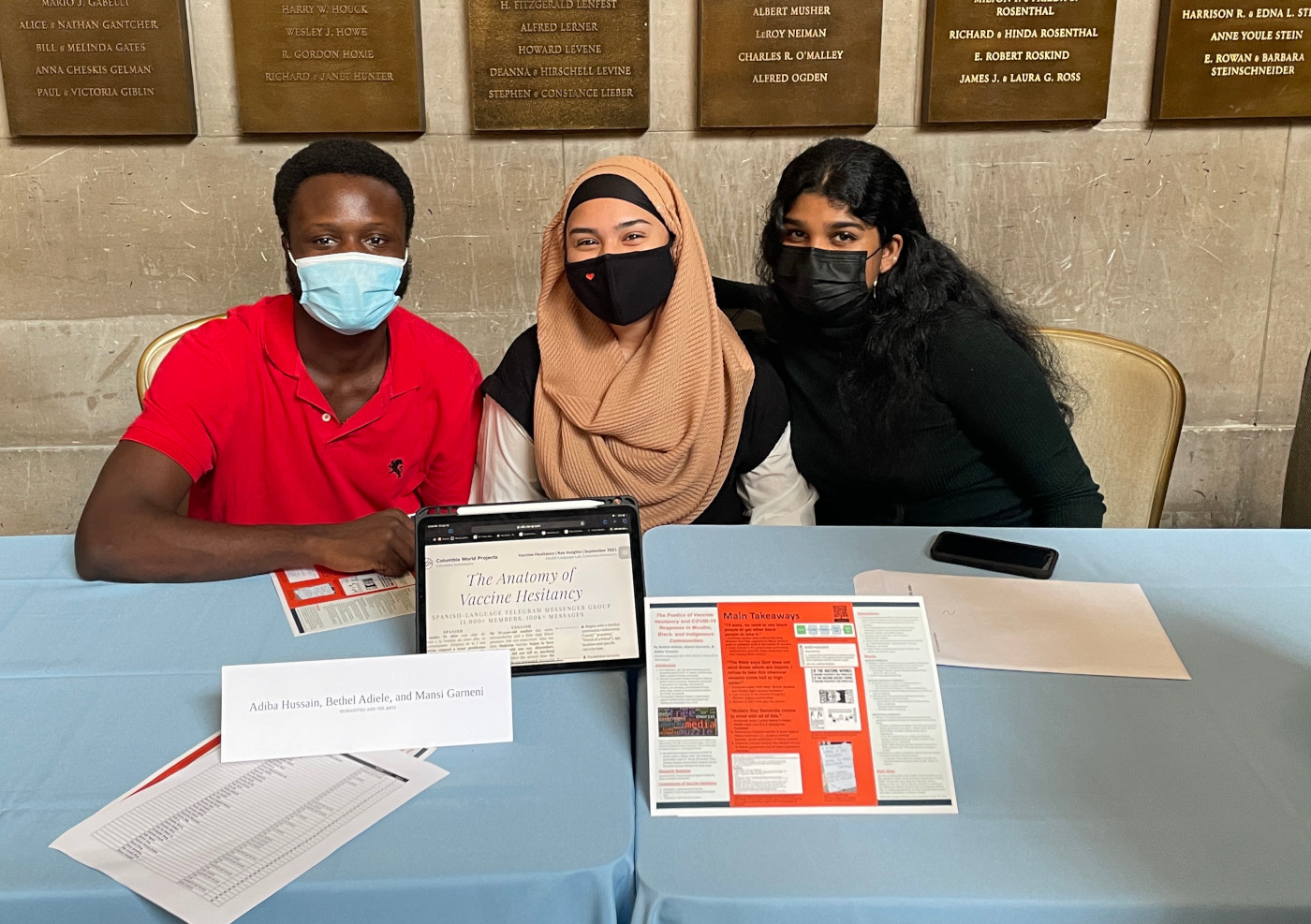Health Language Lab
- Elena Fratto
- Rishi Goyal
- Arden Hegele
- Emily Madison
- Dennis Yi Tenen
Vaccine hesitancy is not simply a matter of ignorance. Communities around the country are reluctant to vaccinate for all sorts of reasons: personal, religious, political, medical. By studying the language of vaccine-related conversations online–using computational analysis–our team of data and language researchers are revealing the deep seated causes of vaccine hesitancy, with the hope of improving vaccine messaging and ultimately increasing uptake.
Language matters. When declaring a “war on drugs,” for example, one should not be surprised if the treatment of addiction becomes militarized, involving further the use of excessive force in the policing of non-violent offences. Similarly, the framing of vaccine hesitancy in terms of ignorance further implies an uneducated public, alienating those who have real concerns about vaccination: in its compliance with Halal or Koshrut restrictions, in matters of healthcare and labor law, and in its sometimes troubled political history.
Understanding these differing concerns allows public health officials to tailor their pro-vaccination messaging to the specific sources of hesitancy, based on evidence collected from millions of conversations online. Matching ways of thinking and communicating ultimately improves community involvement in vaccination efforts.
Ethics charter here.
Research undertaken with funding from Columbia World Projects, in collaboration with the Research Data Services team at Columbia Libraries and Xyonix, AI for Good.
Institutional Partners
- Maine Center for Disease Control & Prevention
- Ulster County (NY) Department of Health and Mental Health
- The Vaccine Confidence Project
In Consultation With
| Dates | Entity |
| 09/25/2020 | Merck Global Medical Affairs, Vaccine Confidence Team |
| 10/13/2020 | Detroit Free Press |
| 03/23/2021 | G7 Global Vaccine Confidence Campaign |
| 03/03/2021 | Cabinet Office, Government of the United Kingdom |
| 05/19/2021 | Global Task Force on Pandemic Response: Mobilizing for India |
Advisory Board
- Noémie Elhadad, Associate Professor of Biomedical Informatics (Columbia University).
- Kathleen McKeown, Henry and Gertrude Rothschild Professor of Computer Science, Founding Director of Columbia’s Data Science Institute (Columbia University).
Student Research Associates
Bethel Ikenna Adiele (Laidlaw Foundation Scholar), Adiba Hussein (Barnard Summer Research Institute Fellow), Jane Rosalyn Paknia (xpMethod Research Fellow), Sharla Kirkpatrick (GSAS-Leadership Alliance Summer Research Program Fellow)

With participation from: Kimberley Gani, Pranav Menon, Lilith Todd, Meg Zhang
